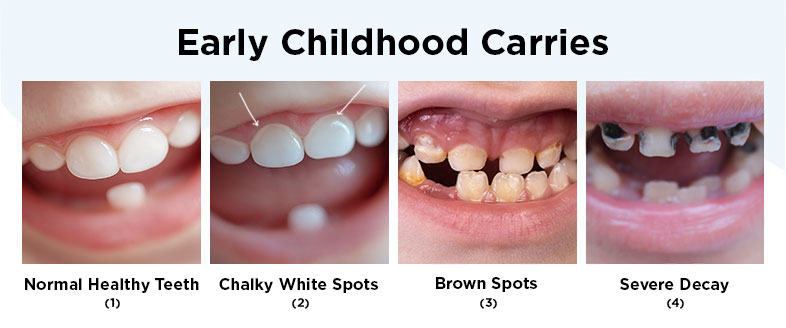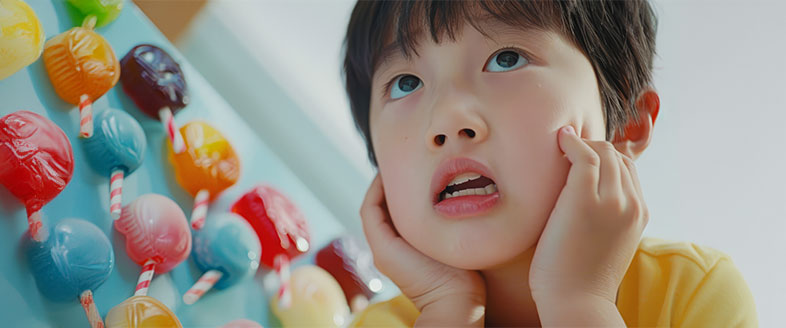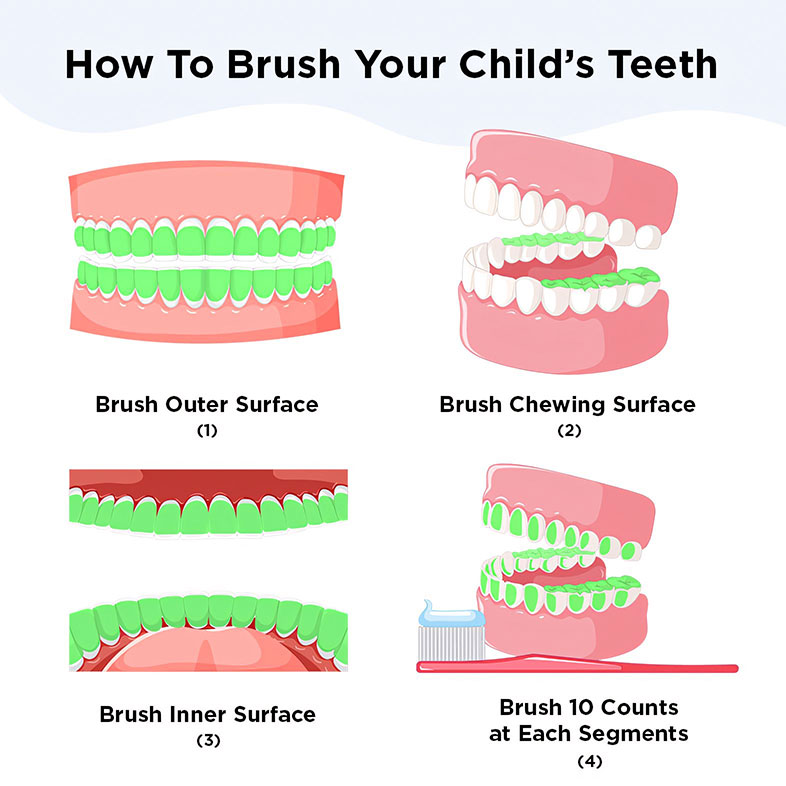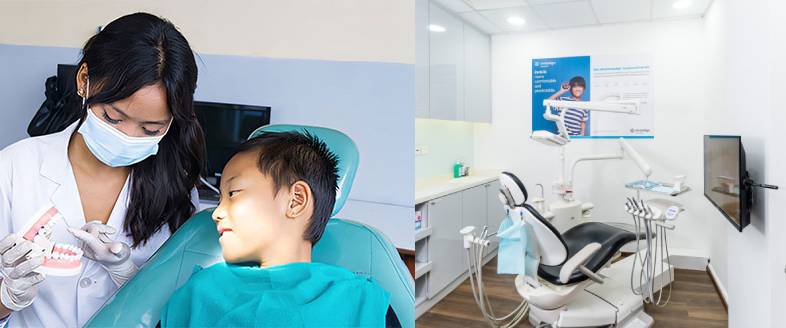Tooth decay, also known as dental caries, is a common yet preventable childhood problem that can have a lasting impact on a child's health and development. As parents, it's crucial to understand how tooth decay can affect your child and what steps you can take to prevent early childhood tooth decay.
How Can Tooth Decay Affect Your Child?
Teeth play a vital role in a child's life, affecting everything from eating and speaking to appearance and overall well-being. Tooth decay is more than just a cavity—it can cause pain, potentially lead to facial swelling, and even delay the development of permanent teeth.
While parents often assume that baby teeth do not require as much care since they are not permanent, early loss of baby teeth due to dental decay can result in long-term impacts such as the misalignment of permanent adult teeth.
What Are Signs of Tooth Decay?

Recognising the signs of early childhood caries is essential for early intervention.
Some early signs include seeing a white, opaque, chalky line (2) on the tooth at the gum line. This is a sign of demineralisation of the dental enamel and can indicate the beginning stages of decay before a cavity forms.
As tooth decay progresses, a visible hole (4) may appear in the affected tooth. At this stage, the decay has penetrated the tooth enamel and requires more extensive treatment.
What Are The Reasons for Tooth Decay in Kids?

Tooth decay in children typically results from a combination of factors—plaque buildup, inadequate oral hygiene practices, and frequent consumption of sugary foods and drinks.
Learn more about dePacific’s or for your child today. Regardless of your child’s age, we will provide a gentle, playful, friendly, and stress-free environment and aim to make each dental visit a pleasant experience for our little patients.
Is Tooth Decay Irreversible for Kids?
Tooth decay can be prevented if spotted early. In the early stages, when white spots form on the teeth, it can still be stopped or reversed. The tooth enamel can repair itself by using minerals from saliva, and fluoride from toothpaste or other sources.
However, tooth decay is irreversible once it progresses beyond the enamel. This is when the enamel is weakened and destroyed, and a cavity forms. Cavities are permanent damage that a dentist has to repair with fillings.
3 Practical Tips: How Can Parents Prevent Their Kids From Getting Tooth Decay?

1) Stop Procrastinating on Your Child’s Dental Appointments
Singapore’s Society for Paediatric Dentistry recommends that children see a dentist by age one. You are also recommended to bring them for a dental visit when their first tooth erupts. Thereafter, you should bring them for regular check-ups every six months to help detect issues early, preventing more severe problems later on.
In fact, at least half of Singapore’s pre-schoolers have tooth decay, with around 90 per cent of children seen at the National Dental Centre Singapore (NDCS) having severe tooth decay. Delayed or untreated cavities can also result in more expensive treatments such as surgery.
So it's time to set a reminder and schedule regular dental appointments for your child. Your dentist will educate you on how to prevent early childhood caries, and to carry out treatment early if need be to avoid pain or losing teeth.
You Should Know! Some children’s first dental visit occurs when they are in pain or discomfort. This causes them to relate dental visits to something unpleasant and develop a fear of the dentist.
Therefore, we recommend that you bring your child for their first dental visit even when they have no perceived dental issues, so that they can be acclimatised to the dental environment. Regular short, successive visits help to build your child’s trust in the dentist, and this can prove invaluable if your child requires more complex dental treatment in the future.
2) Give Sweets & Desserts at the Right Time
Make sure your child avoids frequent snacking and limit sugary snacks between meals. Sugars eaten as part of a meal are less harmful to teeth than those consumed frequently as snacks. You should avoid giving your child sugary foods and drinks before bedtime as well because reduced saliva flow during sleep increases the risk of decay.
Additionally, look for products with the "Lower in Sugar" Healthier Choice Symbol while shopping. These products contain at least 25% less sugar than similar products without the symbol, making them a better choice for your child’s dental health.
For younger children, use bottles only for drinking and avoid using them as pacifiers or comfort items. You should also avoid letting them sleep with a milk bottle or be breastfed throughout the night.
3) Teach Your Child How to Brush Their Teeth
Children can begin brushing their teeth around the time they start school, with guidance. Before the age of 6, it is still advisable for parents to assist in thorough brushing of their child's teeth.
For infants, start cleaning your child's mouth using a clean wet cloth, and switch to a small soft-bristled toothbrush when their first tooth appears. Use fluoride toothpaste appropriate for their age, as fluoride helps strengthen the enamel and prevent tooth decay.
Brush all tooth surfaces thoroughly but also gently in circular motions, to avoid damaging the gums. Encourage spitting out toothpaste, not swallowing it, to minimise ingestion of fluoride. Once your child learns to spit effectively, opt for toothpaste that contains at least 1000ppm fluoride as it is proven to prevent tooth decay.
When your child can brush their own teeth, you can begin teaching them how to brush with proper technique:

Even if a preschool child can brush their teeth, an adult should supervise and provide guidance to ensure thorough cleaning.
Get Advice from a Dentist on Your Child’s Dental Health Today

At dePacific Dental, we care about your little one’s oral health. You can rely on our team of well-trained and professional dentists who are caring, engaging, and fun! All our clinics are equipped with ceiling or wall-mounted TVs to keep your child entertained throughout their dental visit. We are also a Baby Bonus Approved Clinic—this means that the Child Development Account (CDA) can be used for your child’s dental visits at all our clinics.
You can look forward to a full range of paediatric dental care services such as:
Learn more about dePacific’s kids’ dental services or schedule a consultation for your child today. Regardless of your child’s age, we will provide a gentle, playful, friendly, and stress-free environment and aim to make each dental visit a pleasant experience for our little patients.

